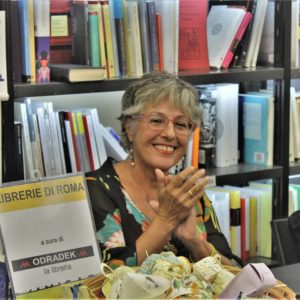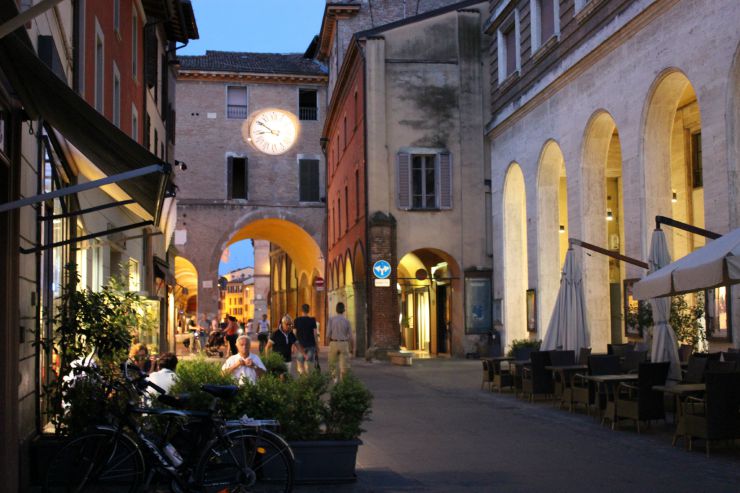My name is Dunia, I am not thirty years old yet, I sell flowers in a shop downtown. I like my job, I like being among all these flowers which I have only recently learned their names: lilies, gerberas, daisies, violets, tulips, sowbreads …
I like these names. I like all these colors and scents. I’m even learning how to make compositions: lilac and lilies, gerberas and daisies, freesias and hawthorn …
I like feeling the velvet petals, the veins of the leaves.
Mrs. Dora, the owner, asks me why I never use roses, why I never touch them not even to put them in vases, to remove the leaves or the stems sprout.
I don’t answer, I can’t. The hands begin to shake, I can’t breathe.
My name is Dunia, I am not twenty years old yet. Today it’s my first day at work, here at the greenhouse in Naivasha. The salary is low but besides the rice and milk needed for my brothers if I’m careful enough maybe I will be able to put something aside to buy a sewing machine and work on my own. The greenhouse is situated in a stunning place near the lake. Everything is green: the water of the lake, the savannah all around, the plants inside the greenhouse. And then a red hot scented sea: the buds sprouting that we must cut before they hatch.
It’s hot down here, a wet, sticky hood. I’ll get used to it.
I’m not used to it, to the humidity, to the sweet perfume that makes me sick, to those products that we spray on the plants so that they don’t get sick.
The roses are always more beautiful, but my skin is filled with red spots, my hands are full of wounds, my eyes shed tears constantly, my throat burns. I work ten, twelve hours a day. I can’t stay at home because they won’t pay me, or maybe they will fire me just like it happened to Njambi when she got pregnant and was about to lose the baby.
I woke up on the mat in my hut. How did I get here? A moment ago I was still at work. My mother is looking at me worried.
“You fainted,” she said. I touch my face: it’s swollen and it burns. My hands burn, my entire body. I would like to get up and go back to work.”I can’t lose my job, Mom. You know that”.
“Rest now, we’ll think about it tomorrow.”
I don’t know how many tomorrows have passed by, my mother told me that I almost died, but at least I got through it. I don’t know how they managed to cure me.
I never returned to the greenhouse. I went to my cousin Malika who works in Rome. It was her who introduced me to Mrs. Dora. Mrs. Dora is always very elegant and kind. She tries her best to convince me that roses are beautiful, that here in Europe they are the flowers of love.
To me that red is not the color of the blood running quickly because of the passion, it is blood that abandons the bodies and steals life, it is blood that kills hope.
No thank you, no roses…. for me.
(in Anna Fresu, Looking at the other, 2016, translated by Diana Nanoos)

Anna Fresu was born in la Maddalena, off of the island of Sardinia and has a literature degree from the university of Rome. . She is a theater director, actress, translator and scholar of African literatures. In 1975 she worked in Portugal as cultural mediator. From 1977 to 1988 she lived in Mozambique where she taught and directed the National Theatre School as well as created and co-directed the “Department of Cinema for Children and Young Adults” and made several films that received international awards. In 2013 she published the short story collection Sguardi Altrove, Vertigo Edizioni and in 2018 she published the poetry collection Ponti di corda, Temperino Rosso Edizioni. Her poems, short stories, and articles are included in many anthologies and online literary journals. In Argentina she taught Italian language and Culture and the University of Mendoza and put on several plays. She currently lives in Forlì, Italy.





















































